Apr 2, 2024 12:59 PM
Saxophonist, Sonic Explorer Casey Benjamin Dies at 45
Casey Benjamin, the alto saxophonist, vocalist, keyboardist and producer who stamped his distinctive sounds on the…
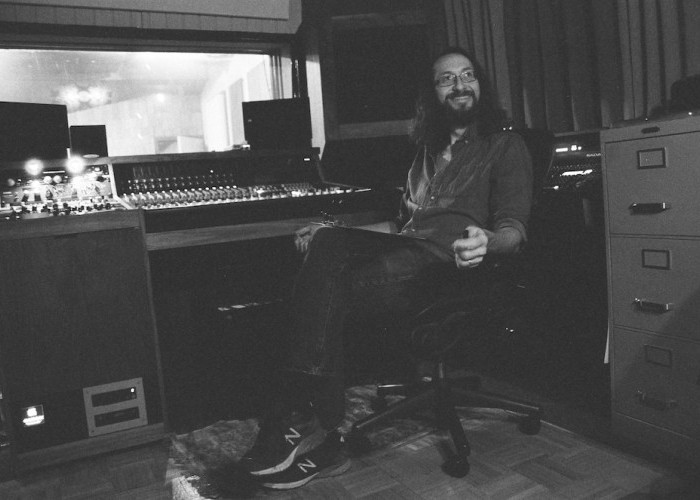
Chris Schlarb opened Big Ego studios in his hometown of Long Beach, California, in March 2016. In 2018, he launched Big Ego Records as a vinyl subscription series.
(Photo: Devin O’Brien)When Chris Schlarb opened Big Ego studios in his hometown of Long Beach, California, in March 2016, he didn’t also intend to start releasing records. But as a succession of gifted—and relatively unheralded—artists passed through, the 41-year-old producer, musician and engineer felt a growing sense of obligation toward them.
“We were doing all these records that I knew were great,” Schlarb said. “And I was afraid they would end up going out into this digital wasteland.”
So, at the beginning of 2018, Schlarb launched Big Ego Records as a vinyl subscription series. For $85 a year (plus tax and shipping), patrons get four limited-run records annually, shipped two at a time. The label, like its owner—best-known for his experimental groups Psychic Temple and I Heart Lung—is genre agnostic, though each pair of albums is intended to be complementary. After debuting Big Ego with a pair of folk and bluegrass outings, Schlarb, who produces each Big Ego release in-house, turned his attention toward two releases that fall loosely under the heading of jazz, though both experiment with the form in intriguingly different ways.
Forest Standards, Vol. 1 is the debut leader date from Wichita, Kansas, guitarist David Lord, whom Schlarb discovered 10 years ago when he shared a bill with Lord’s post-rock group Solagget. “I heard this sweetness in his playing,” Schlarb said. “A very thoughtful, melodic, Midwestern jazz quality I always associate with early Pat Metheny.” Though Lord has a style all his own, the Metheny comparison is apt; even when he’s exploring the dissonant spaces between his tricky progressions, there’s a lightness to his tone that makes the compositions feel less experimental than they are.
To accompany the 36-year-old guitarist, Schlarb brought in bassist Devin Hoff, best-known for his work with Nels Cline and art-rockers Xiu Xiu, and veteran drummer Chad Taylor (Chicago Underground Duo, Marc Ribot). The trio never had played together before—a hallmark of Schlarb’s work at Big Ego, where he prides himself on putting together musicians from disparate backgrounds who he thinks will have interesting chemistry together. The results speak for themselves: Forest Standards, Vol. 1 is a fascinating record, full of slippery arrangements that allow all three players to showcase their endlessly creative approaches to their instruments.
Taylor resurfaces on the other album in Big Ego’s late-2018 pairing: Quartet & Double Quartet, from Long Beach bassist Anthony Shadduck. On the album’s first half, Shadduck leads guitarist Jeff Parker, pianist Cathlene Pineda and drummer Dylan Ryan through four variations on modal compositions, including Ornette Coleman’s “Law Years,” which the quartet sets beautifully adrift in floating free time, and a Schlarb tune, “The Starry King Hears Laughter,” which Pineda illuminates with a Brad Mehldau-like sense of harmony and restraint.
The double quartet, by contrast, pays homage to Coleman’s classic takes on the titular configuration, even as it careens into new terrain. To match Taylor’s shifty, polyrhythmic drumming, Schlarb and Shadduck brought in longtime Lou Reed sideman and Paul Motian acolyte Danny Frankel, who could keep up with Taylor, even as he gave the arrangements a rock drummer’s sense of forward momentum. “I love that combination,” Schlarb said. “They’re such wildly different personalities.” The double quartet also features Shadduck and David Tranchina on bass, Alex Sadnik and Phillip Greenlief on reeds and, crucially, trumpeter Kris Tiner and multi-instrumental brass player Danny Levin. The latter pair’s wild interplay gives the material a loose, carnivalesque quality that saves it from becoming an overly intellectual exercise in free-jazz revisionism.
Future Big Ego releases are set to include not just jazz, but more folk, Americana, post-rock and even experimental pop music. The common thread will be Schlarb’s clean, uncluttered production style and his never-ending quest to push musicians outside their comfort zones. “There should be an element of fear,” he said. “Being afraid before a session is such a healthy and exciting feeling. It puts you on edge. It makes you want to do things you haven’t done before.” DB
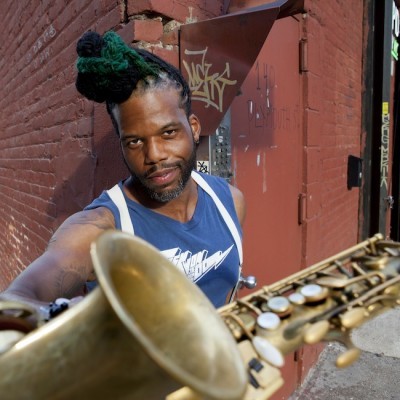
Benjamin possessed a fluid, round sound on the alto saxophone, and he was often most recognizable by the layers of electronic effects that he put onto the instrument.
Apr 2, 2024 12:59 PM
Casey Benjamin, the alto saxophonist, vocalist, keyboardist and producer who stamped his distinctive sounds on the…
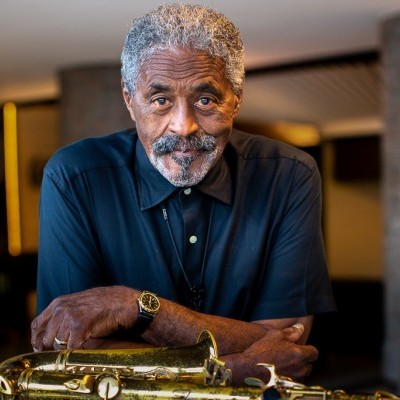
“He’s constructing intelligent musical sentences that connect seamlessly, which is the most important part of linear playing,” Charles McPherson said of alto saxophonist Sonny Red.
Feb 27, 2024 1:40 PM
“I might not have felt this way 30 to 40 years ago, but I’ve reached a point where I can hear value in what people…
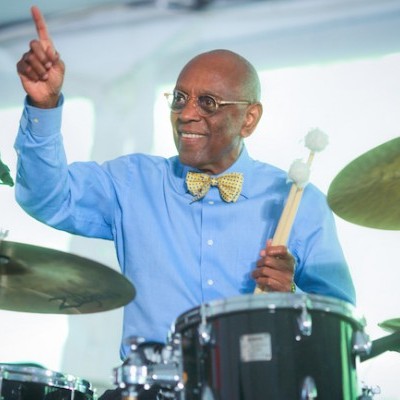
Albert “Tootie” Heath (1935–2024) followed in the tradition of drummer Kenny Clarke, his idol.
Apr 5, 2024 10:28 AM
Albert “Tootie” Heath, a drummer of impeccable taste and time who was the youngest of three jazz-legend brothers…
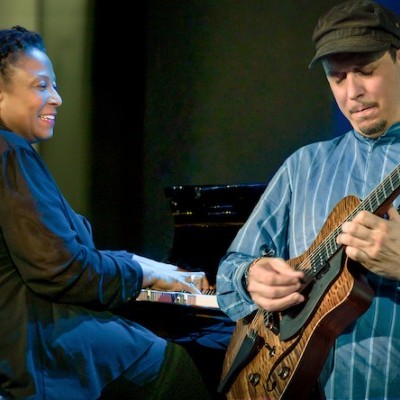
“Both of us are quite grounded in the craft, the tradition and the harmonic sense,” Rosenwinkel said of his experience playing with Allen. “Yet I felt we shared something mystical as well.”
Mar 12, 2024 11:42 AM
“There are a few musicians you hear where, as somebody once said, the molecules in the room change. Geri was one of…
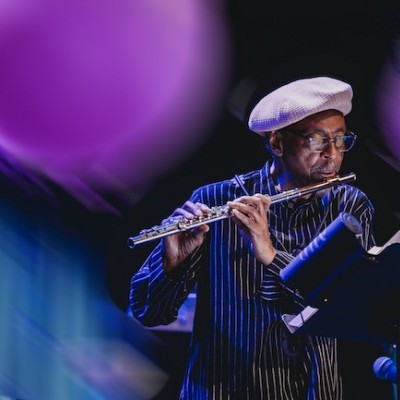
Henry Threadgill performs with Zooid at Big Ears in Knoxville, Tennessee.
Apr 9, 2024 11:30 AM
Big Ears, the annual four-day music celebration that first took place in 2009 in Knoxville, Tennessee, could well be…